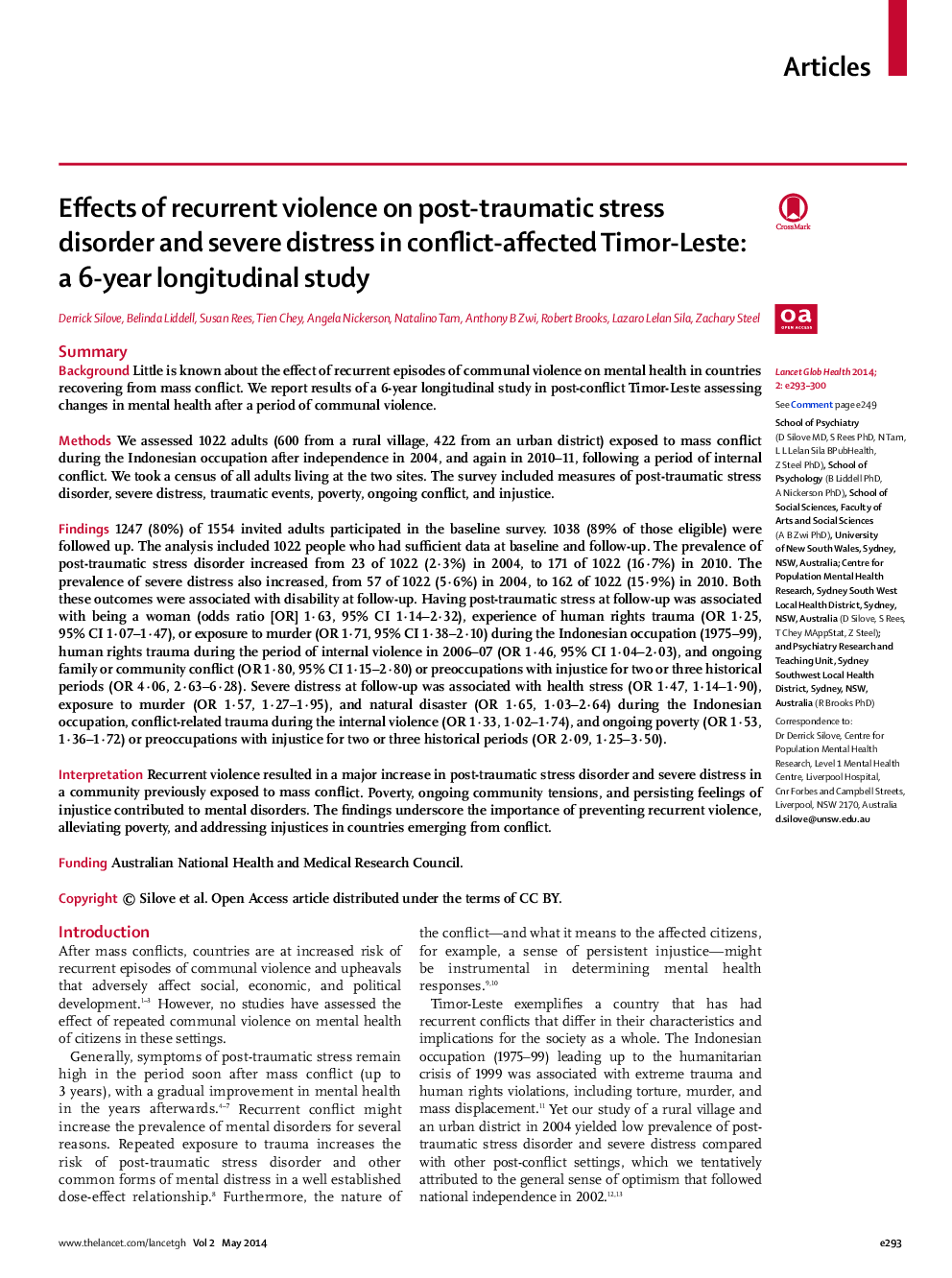| Article ID | Journal | Published Year | Pages | File Type |
|---|---|---|---|---|
| 3409574 | The Lancet Global Health | 2014 | 8 Pages |
SummaryBackgroundLittle is known about the effect of recurrent episodes of communal violence on mental health in countries recovering from mass conflict. We report results of a 6-year longitudinal study in post-conflict Timor-Leste assessing changes in mental health after a period of communal violence.MethodsWe assessed 1022 adults (600 from a rural village, 422 from an urban district) exposed to mass conflict during the Indonesian occupation after independence in 2004, and again in 2010–11, following a period of internal conflict. We took a census of all adults living at the two sites. The survey included measures of post-traumatic stress disorder, severe distress, traumatic events, poverty, ongoing conflict, and injustice.Findings1247 (80%) of 1554 invited adults participated in the baseline survey. 1038 (89% of those eligible) were followed up. The analysis included 1022 people who had sufficient data at baseline and follow-up. The prevalence of post-traumatic stress disorder increased from 23 of 1022 (2·3%) in 2004, to 171 of 1022 (16·7%) in 2010. The prevalence of severe distress also increased, from 57 of 1022 (5·6%) in 2004, to 162 of 1022 (15·9%) in 2010. Both these outcomes were associated with disability at follow-up. Having post-traumatic stress at follow-up was associated with being a woman (odds ratio [OR] 1·63, 95% CI 1·14–2·32), experience of human rights trauma (OR 1·25, 95% CI 1·07–1·47), or exposure to murder (OR 1·71, 95% CI 1·38–2·10) during the Indonesian occupation (1975–99), human rights trauma during the period of internal violence in 2006–07 (OR 1·46, 95% CI 1·04–2·03), and ongoing family or community conflict (OR 1·80, 95% CI 1·15–2·80) or preoccupations with injustice for two or three historical periods (OR 4·06, 2·63–6·28). Severe distress at follow-up was associated with health stress (OR 1·47, 1·14–1·90), exposure to murder (OR 1·57, 1·27–1·95), and natural disaster (OR 1·65, 1·03–2·64) during the Indonesian occupation, conflict-related trauma during the internal violence (OR 1·33, 1·02–1·74), and ongoing poverty (OR 1·53, 1·36–1·72) or preoccupations with injustice for two or three historical periods (OR 2·09, 1·25–3·50).InterpretationRecurrent violence resulted in a major increase in post-traumatic stress disorder and severe distress in a community previously exposed to mass conflict. Poverty, ongoing community tensions, and persisting feelings of injustice contributed to mental disorders. The findings underscore the importance of preventing recurrent violence, alleviating poverty, and addressing injustices in countries emerging from conflict.FundingAustralian National Health and Medical Research Council.
